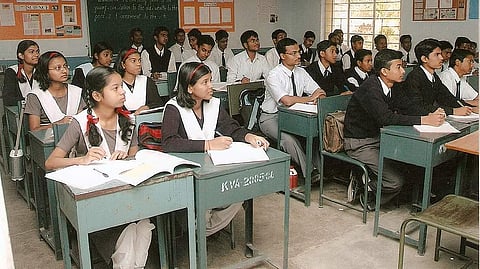

India’s education system is undergoing one of its most significant transformations in decades — shifting from rote learning to a skill-driven, innovation-led, and globally competitive model. Led by the Ministry of Education, the University Grants Commission (UGC), and the All India Council for Technical Education (AICTE), these reforms are reshaping classrooms with an emphasis on artificial intelligence, experiential learning, and global collaboration.
Yet, experts warn that while policy ambitions are high, execution remains uneven — particularly in the area of teacher training and institutional readiness.
“India’s education system is unquestionably moving toward a future-ready model, but the reforms are currently running ahead of their execution,” said Neelima Kamrah, Principal of KIIT World School, Gurugram. “Urban institutions adapt swiftly, but Tier-2, Tier-3, and rural campuses face fragile digital infrastructure, limited industry links, and a shortage of skilled educators.”
AI and Future Skills Take Centre Stage
AICTE’s new AI-based curriculum and the introduction of emerging disciplines such as cybersecurity, data science, IoT, and robotics underscore a decisive shift toward an AI-first workforce. The National Credit Framework (NCrF) allows students to earn credits for internships, vocational learning, and skill-based training, while tech giants like Google, Microsoft, and IBM are partnering with the government to strengthen digital education.
“The integration of internships, apprenticeships, and entrepreneurial exposure as credit-based components signifies a paradigm shift from theory to application,” said Er Koneru Satyanarayana, Chancellor of KL Deemed to be University.
“This experiential model fosters innovation, problem-solving, and industry engagement — essential qualities for the workforce of tomorrow.”
From Rote to Real-World Learning
UGC’s inclusion of internships and apprenticeships in degree programmes, alongside initiatives like the National Apprenticeship Promotion Scheme and Skill India Mission, is helping students gain practical exposure. Over 1,400 higher education institutions are now part of the National Innovation and Startup Policy ecosystem. However, as Kamrah cautions, “Without sustained investment in teacher training, industry-academia collaboration, and equitable digital access, the promise of reform risks outpacing its practice.”
Mental Health: Policy Priority, Patchy Progress
The National Education Policy (NEP) mandates the establishment of mental health clubs and counsellor appointments across campuses, with UGC guidelines for 2024–25 requiring professional counsellors and teacher training in psychological well-being. Yet, a joint AIIMS-NIMHANS study revealed significant gaps — many institutions lack trained counsellors, and stigma continues to prevent students from seeking help.
Global Engagement: Toward Brain Gain
Reforms promoting international mobility, joint degree programmes, and foreign university campuses are ushering in a new era of academic exchange. The establishment of foreign university campuses in Gujarat International Finance Tec-City (GIFT City) marks a significant step in reversing India’s traditional “brain drain” into “brain gain.”
Bridging the Digital Divide
Initiatives like PM e-Vidya, SWAYAM, and rural infrastructure grants are expanding digital access, but reports from ASER 2023 and UNESCO highlight continuing disparities in device availability and teacher digital fluency — crucial for the success of blended learning.
“India’s education system stands at a defining moment, where visionary reforms meet collective responsibility to translate intent into impact,” said Er Koneru Satyanarayana. “The vision is future-oriented, and its success will depend on how effectively execution aligns with aspiration, ensuring that every learner, across regions and realities, benefits from this educational shift.”
As India embraces its future-ready education agenda, the challenge lies not in policy design but in delivery — ensuring that every classroom, teacher, and learner becomes part of the nation’s transformative journey from reform to real impact.
